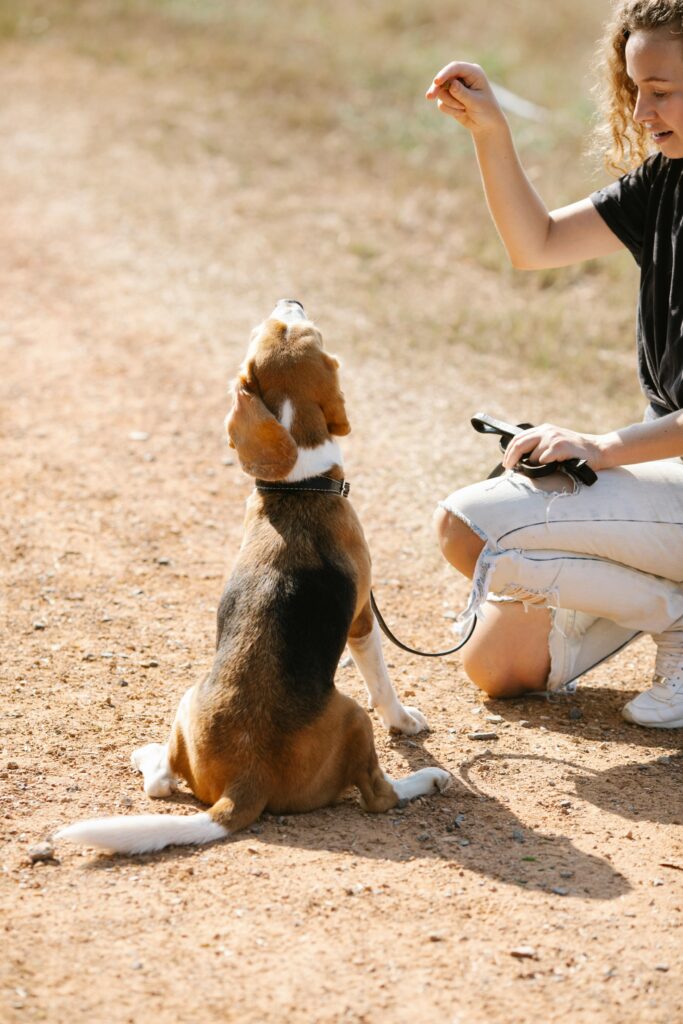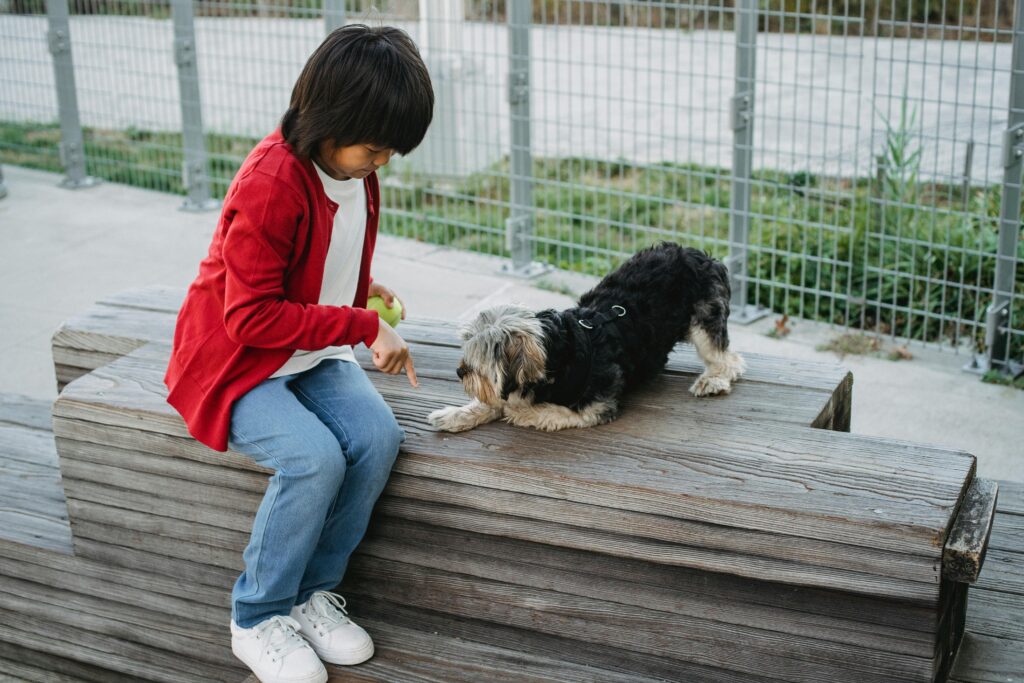Training your dog is not a one-time event, it is an ongoing process that evolves as your dog grows, matures, and encounters new life experiences. Whether you are raising a curious puppy, managing an energetic adult, or caring for a gentle senior, obedience training builds trust, reinforces good behavior, and creates a lifelong bond.
This guide breaks down the essential obedience training needs for each stage of life, complete with tips you can use today.

Puppy Stage: The Formative Months
Puppyhood is when your dog is most impressionable. It is the perfect time to set expectations, introduce structure, and teach foundational skills.
Key puppy training goals:
- Name recognition so your pup responds when called
- Basic commands like sit, down, come, and place
- Crate training for safety and structure
- Potty training for household harmony
- Positive exposure to people, dogs, and environments
Consistency is crucial during this stage, as outlined in why consistency is the secret ingredient in dog training. Every interaction with your puppy is an opportunity to teach and reinforce good behavior.
Adolescent to Adult Stage: Reinforcing and Expanding Skills
As your dog matures, distractions become more challenging. Adolescence often comes with increased independence, testing boundaries, and bursts of energy.
Adult dog training focus areas:
- Strengthening recall in high-distraction environments
- Perfecting leash manners
- Introducing advanced commands like heel, extended stay, and off-leash obedience
- Building impulse control around distractions such as other dogs, wildlife, or food
At this stage, our Basic & Advanced Obedience Program can make a dramatic difference in your dog’s responsiveness and reliability.
Senior Stage: Maintaining Skills and Adjusting to Limitations
Older dogs still benefit from ongoing obedience training. In fact, mental engagement can help slow cognitive decline and keep them active.
Senior dog training adjustments:
- Lower-impact physical activities
- Shorter, more frequent training sessions
- Continued practice of commands to maintain sharpness
- Enrichment games that encourage thinking and problem-solving
Training an older dog is also about adapting expectations. Mobility limitations, hearing loss, or vision decline might require you to use hand signals, adjust command timing, or modify exercises.
Core Principles for Every Stage
Regardless of age, these principles apply to all training:
- Consistency is everything. Dogs thrive on routine and clear expectations.
- Positive reinforcement works. Rewarding desired behavior is more effective than punishing mistakes.
- Short and frequent beats long and rare. Even 5 minutes daily is better than one long session a week.
- Train in different environments. A dog who listens only at home is not fully trained.
- Make training part of daily life. Incorporate obedience into everyday activities like feeding, walks, and playtime.
Tools and Resources for Success
- Clickers for marking behaviors
- Treat pouches for quick rewards
- Leashes and harnesses suited to your dog’s size and activity level
- Place beds for teaching the “place” command
- Interactive toys for mental engagement
Common Training Challenges Across All Stages
Regardless of your dog’s age, you may encounter similar training challenges:
- Inconsistency at home leading to confusion
- Overexcitement during greetings
- Distraction overload in busy environments
- Regression when routines change
The American Kennel Club offers helpful travel tips for dog owners that can help you maintain training even when away from home.
Why Lifelong Training Matters
Training is not just about teaching commands, it is about strengthening your relationship. Dogs thrive when they have clear boundaries, consistent reinforcement, and positive leadership from their owners.
By committing to ongoing obedience work, you are not only improving your dog’s behavior but also their quality of life. A well-trained dog enjoys more freedom, more adventures, and a deeper bond with you.
Final Thoughts
No matter where your dog is in life, there is always room for improvement and growth. With the right training approach for each stage, you can enjoy a lifetime of trust, respect, and joyful companionship.
If you are ready to give your dog the structure and skills they need at any age, our team at Off Leash K9 Training Chicago can help. Visit our contact page today to start your dog’s transformation.

